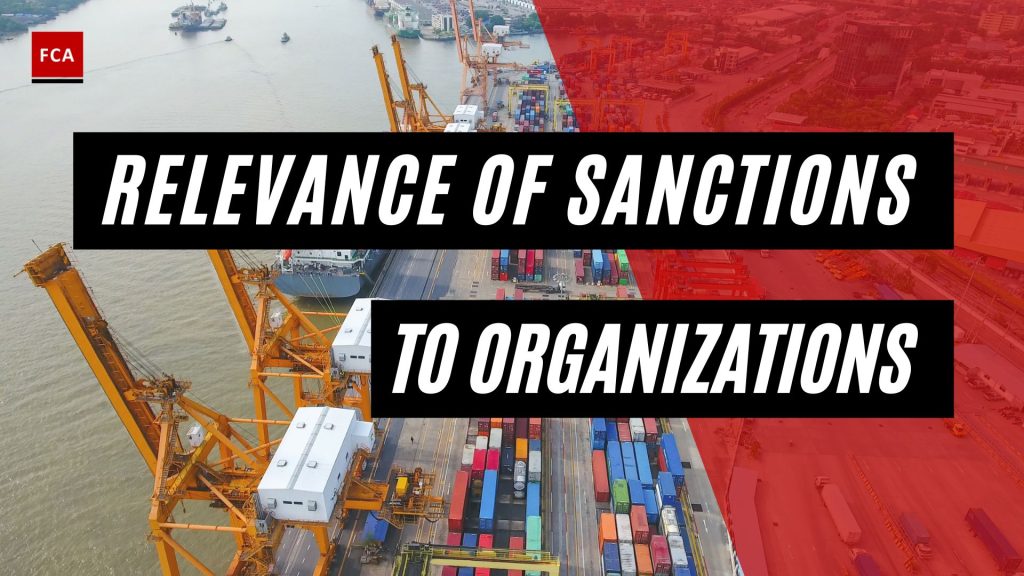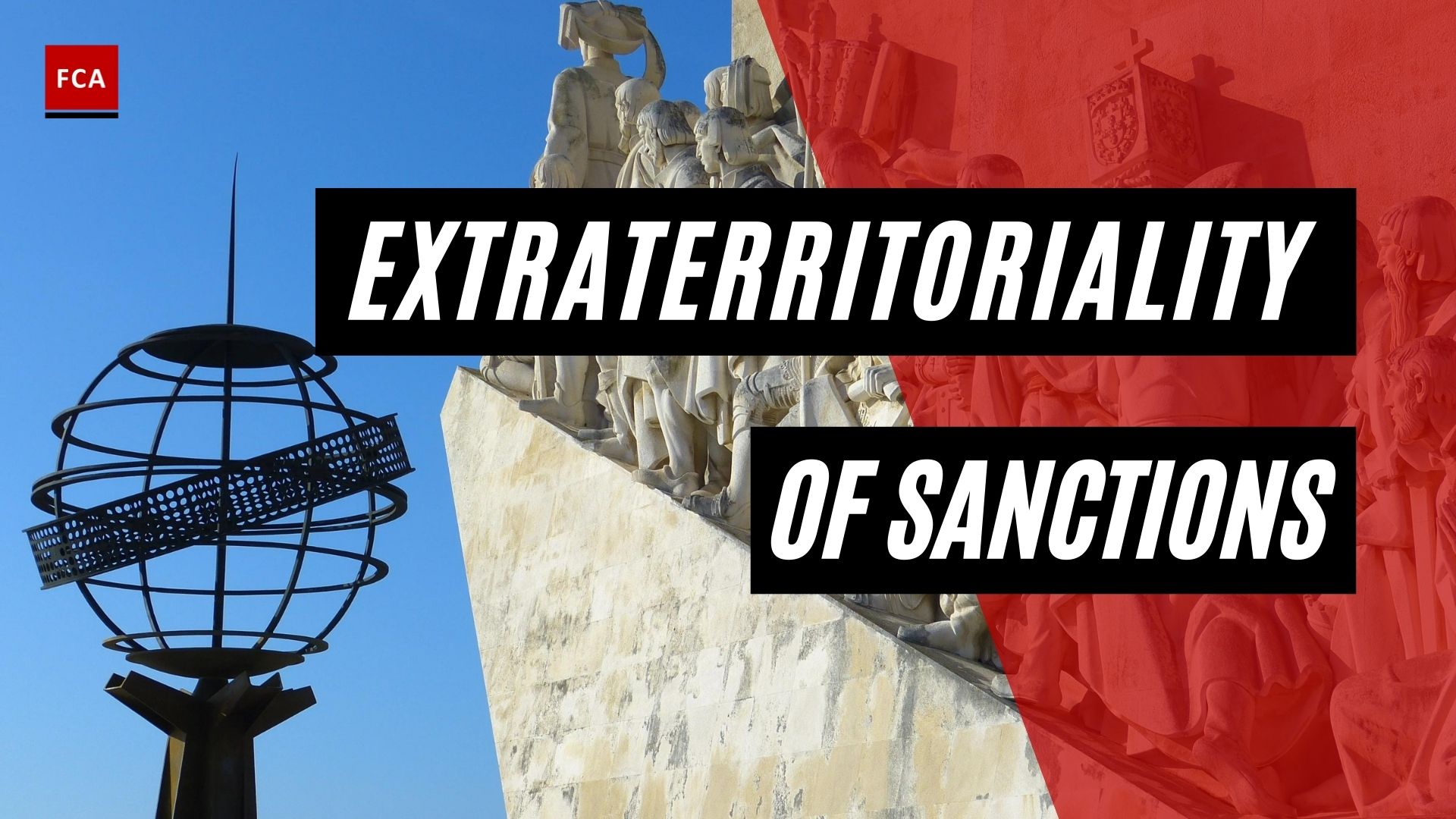The relevance of sanctions to organizations are required to ensure compliance with sanction related regulatory requirements. Organizations are required to comply with applicable laws and regulations, therefore, they need to implement appropriate compliance measures, to ensure that the sanctions compliance requirements are considered, as part of the overall compliance program. Management must ensure that sanctions and restrictions imposed by the state and authorities are considered for sanction screening and compliance purposes.

The Relevance of Sanctions to Organizations
Sanction screening is also performed for the organizations, to ensure that they are not appearing on different sanction lists. Regulatory authorities issue various rules and regulations, for the organizations, which include the regulations to ensure sanctions compliance.
Management is responsible to implement an effective and robust sanction compliance program, which should be disseminated to the relevant employees, for compliance purposes. This is achieved through a strong compliance culture and a compliance program, including the sanction compliance requirements.
Regulatory requirements, when used effectively, avoid sanctions non-compliances which can disrupt, deter, and prevent actions that undermine national security. However, the organizations face new, emerging challenges to the efficacy of sanctions as a national security tool, such as cybercriminals, strategic economic competitors, and a workforce under pressure from growing financial complexity.
Organizations, including financial institutions, are exposed to sanctions non-compliance risk because of the nature of their business activities including cross-border transactions. These organizations are required to adopt appropriate compliance measures, to avoid the risk of being involved in money laundering or terrorist financing and sanctions noncompliance.
To ensure sanctions continue to support national security objectives, the government is required to adapt and modernize the underlying operational architecture by which sanctions are deployed and issue the regulatory framework to address the potential changes to the market and operating dynamics, in which organizations operate.

Final Thoughts
Sanctions are critical in the global fight against financial crime, terrorism, and other activities that threaten international peace. Sanctions may be imposed by governments or international organizations such as the United Nations on other states, legal entities, terrorist organizations, or individuals. These have the effect of forbidding organizations from doing business with those parties or granting the authority to levy penalties on those who violate the sanctions restrictions. To manage risk, businesses should implement an effective sanctions compliance program that addresses legal, technological, operational, and cultural aspects to ensure ongoing compliance with all relevant sanctions imposed by various governments and other bodies.
Sanctions screening is an essential component of any effective compliance program. Historically, the process was primarily concerned with financial institutions, but regulators have expanded its scope over time. Every business must now check its clients and partners against the sanctions list.








